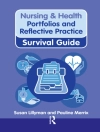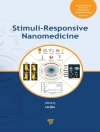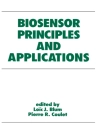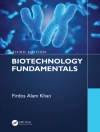In the event of a paediatric cardiac arrest, it is essential to be
able to respond rapidly, providing safe and effective care. The
second edition of this successful text provides nurses with a
practical and systematic guide to the rapid assessment and delivery
of appropriate resuscitation to infants and children.
* Conforms to current European Resuscitation Council
Guidelines
* Based on up-to-date research and evidence-based practice
protocols
* Synoptic approach enables rapid delivery of effective
treatment
* Written by experts in the field of both resuscitation and
paediatrics
Paediatric Advanced Life Support is a succinct yet
comprehensive guide and is an essential purchase for any health
professional likely to encounter an emergency situation.
Daftar Isi
Foreword vii
Contributors viii
Chapter 1 An Overview of Paediatric Advanced Life Support 1
Chapter 2 Resuscitation Equipment for Paediatric Resuscitation 15
Chapter 3 Recognition of the Seriously Ill Child 23
Jayne Breakwell
Chapter 4 Paediatric Basic Life Support 36
Chapter 5 Airway Management and Ventilation 66
Chapter 6 ECG Recognition and Management of Cardiac Arrhythmias 103
Chapter 7 Defi brillation and Electrical Cardioversion 116
Chapter 8 Paediatric Advanced Life Support 134
Chapter 9 Management of Anaphylaxis 157
Chapter 10 Resuscitation in Special Situations 171
Chapter 11 Post-resuscitation Care 190
Chapter 12 Bereavement 205
Kirsti Soanes
Chapter 13 Records, Record-keeping and Audit 218
Chapter 14 Legal and Ethical Issues 222
Richard Griffith
Chapter 15 Resuscitation Training 237
Index 253
Tentang Penulis
Phil Jevon qualified as an RGN in 1986. He worked on CCU
between the years 1987 and 1993 during which time he gained
considerable experience in coronary care nursing. He has been
the Resuscitation Officer/ clinical Skills Lead at The Manor
Hospital, Walsall since 1993 and is an Honorary Clinical Lecturer
at the Birmingham Medical School. Holding the hospital cardiac
arrest bleep, he attends paediatric arrests. He has run the
Paediatric advanced life support courses (PALS, APLS, EPLS) for the
last 17 years.












